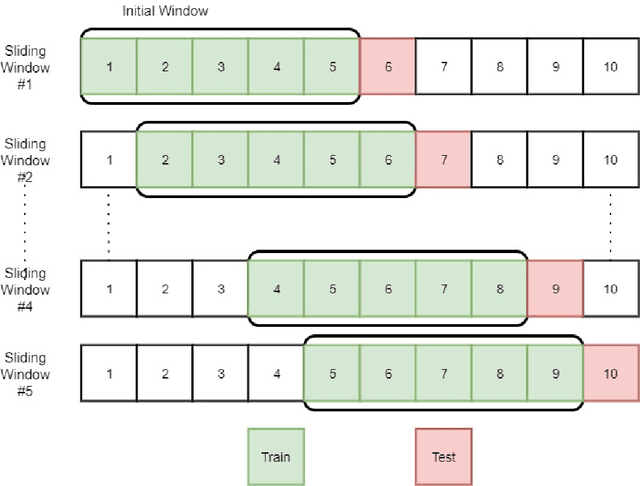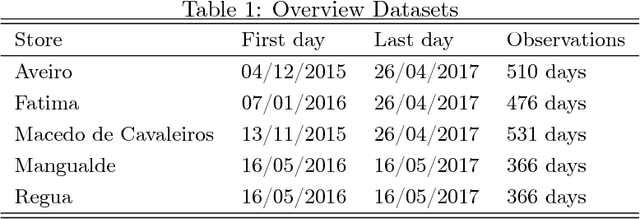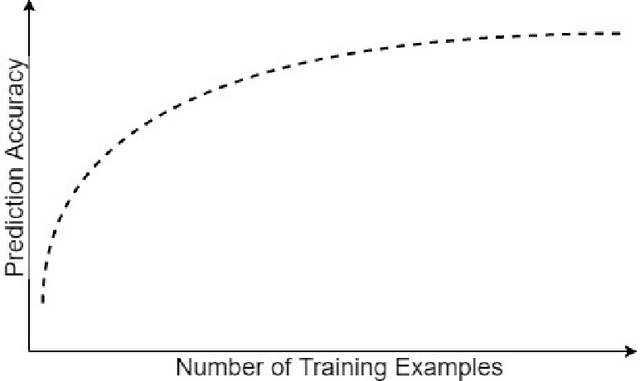Dylan te Lindert
Smart energy management as a means towards improved energy efficiency
Feb 08, 2018



Abstract:The costs associated with refrigerator equipment often represent more than half of the total energy costs in supermarkets. This presents a good motivation for running these systems efficiently. In this study, we investigate different ways to construct a reference behavior, which can serve as a baseline for judging the performance of energy consumption. We used 3 distinct learning models: Multiple Linear Regression, Random Forests, and Artificial Neural Networks. During our experiments we used a variation of the sliding window method in combination with learning curves. We applied this approach on five different supermarkets, across Portugal. We are able to create baselines using off-the-shelf data mining techniques. Moreover, we found a way to create them based on short term historical data. We believe that our research will serve as a base for future studies, for which we provide interesting directions.
 Add to Chrome
Add to Chrome Add to Firefox
Add to Firefox Add to Edge
Add to Edge